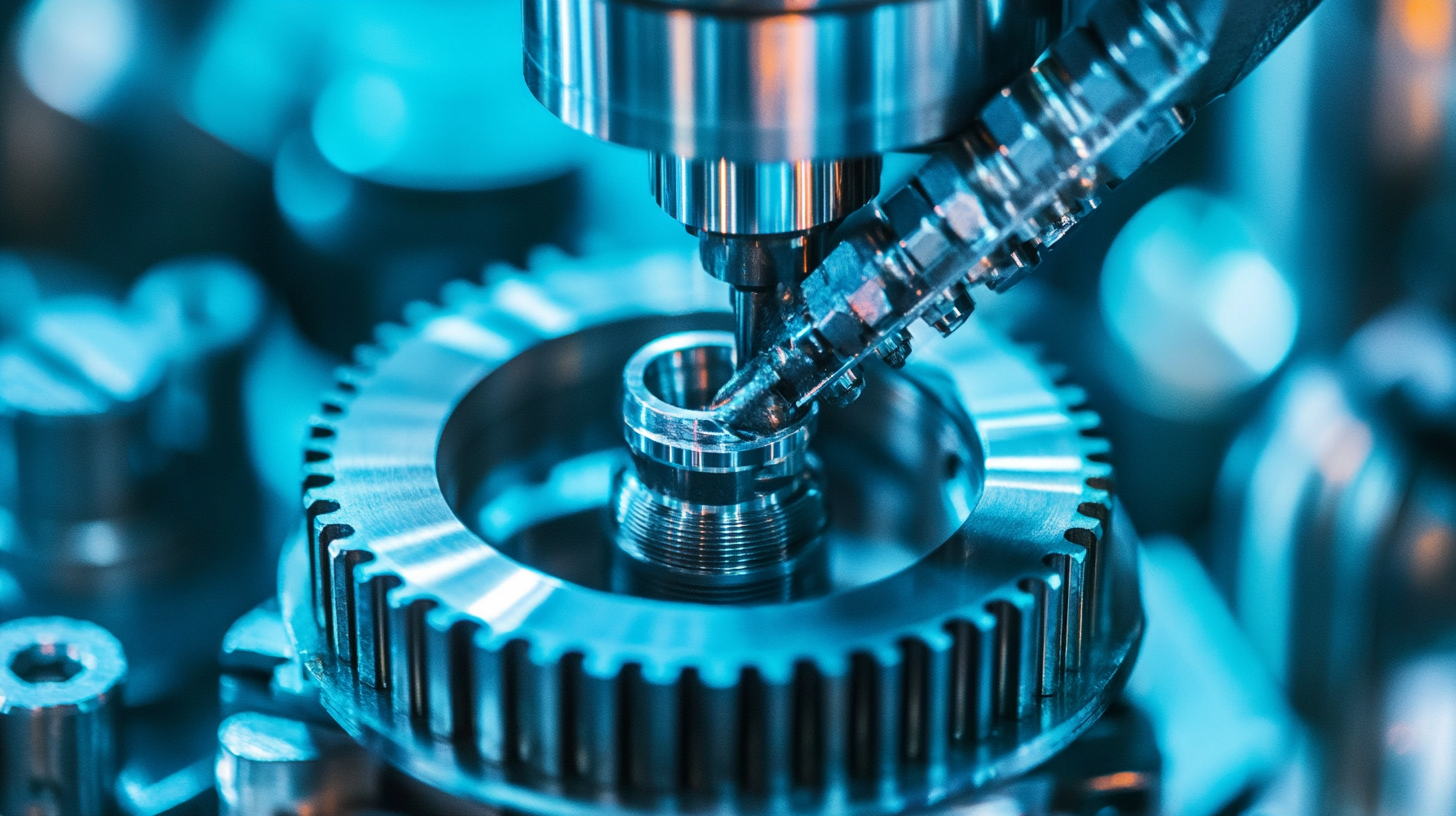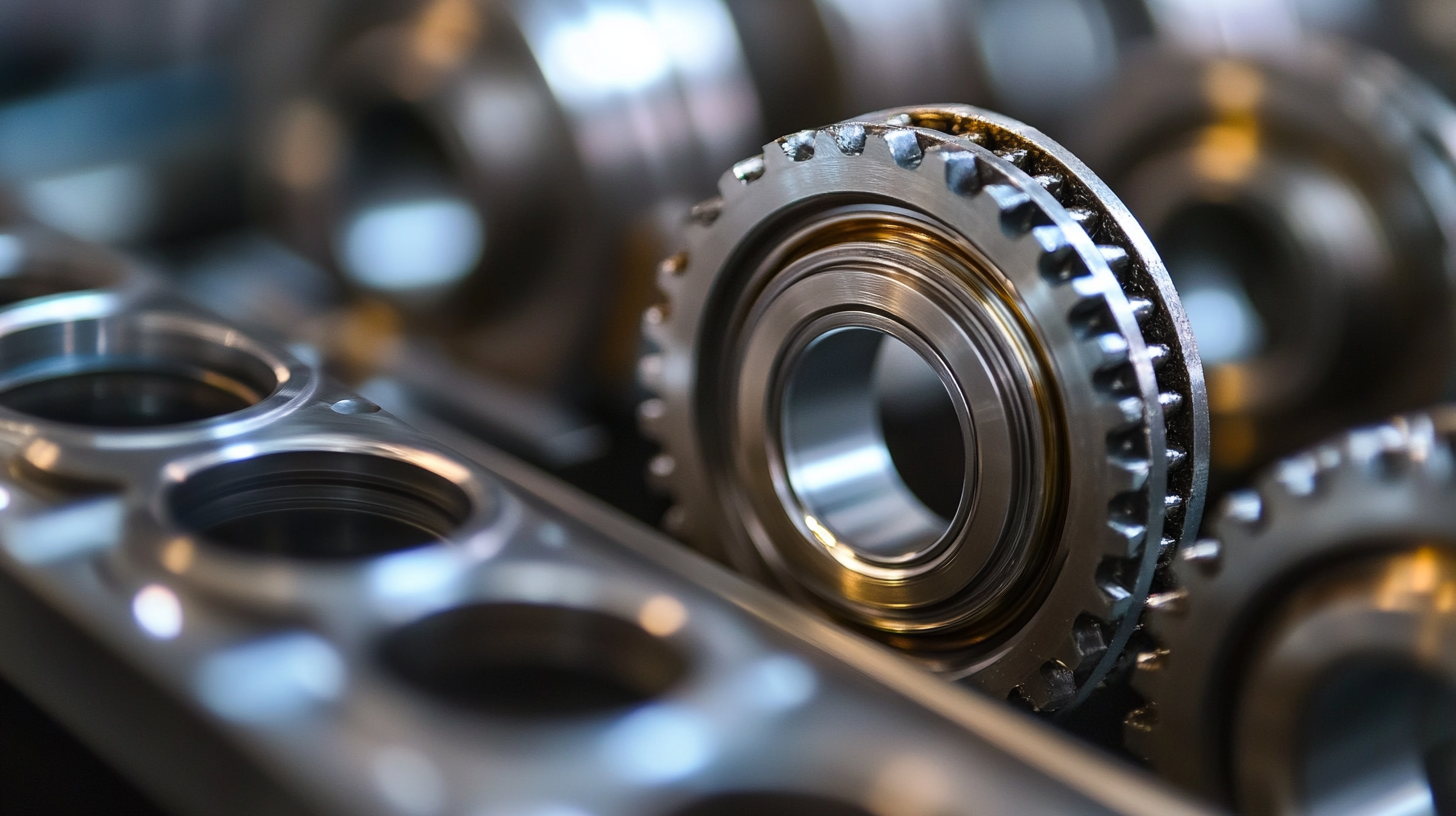Challenges Faced by Top Precision Miniature Bearings Manufacturers in Quality Assurance
In today's competitive landscape, ensuring the highest standards of quality is paramount for any Precision Miniature Bearings Manufacturer. Despite advancements in technology and manufacturing processes, these industry leaders face a myriad of challenges in their pursuit of quality assurance. From sourcing reliable materials to implementing rigorous testing protocols, maintaining product integrity becomes increasingly complex. As they navigate these hurdles, the quest for top-notch suppliers becomes crucial. Identifying suppliers that not only meet stringent quality criteria but also align with the manufacturer’s operational goals is vital for sustaining excellence in production. This blog will explore the various challenges encountered by these manufacturers in quality assurance and offer insights on effectively locating and partnering with high-quality suppliers to achieve success in the precision miniature bearings market.

Impact of Evolving Industry Standards on Miniature Bearings Quality Control
The miniature bearings industry is experiencing a transformative phase, largely driven by evolving industry standards that pose both challenges and opportunities for manufacturers. As regulations become more stringent, leading manufacturers must adapt their quality control processes to ensure compliance. This shift not only involves meeting specific dimensional and material requirements but also encompasses new testing protocols that aim to enhance performance reliability and longevity. Navigating these complexities demands a thorough understanding of the evolving landscape, which can strain resources and necessitate investment in advanced technologies.
Additionally, the impact of industry standards extends beyond compliance; it influences customer expectations as well. With consumers increasingly prioritizing quality and performance, manufacturers are compelled to elevate their products to maintain market competitiveness. This involves not just adhering to regulatory norms but also integrating continuous improvement practices into their quality assurance frameworks. By embracing a proactive approach towards quality control, manufacturers can enhance product integrity while fostering trust among clients who depend on the reliability of miniature bearings in various applications. The ongoing evolution of industry standards serves as a critical driver for innovation in quality assurance, compelling manufacturers to stay ahead in a challenging market.
Challenges Faced by Top Precision Miniature Bearings Manufacturers in Quality Assurance
| Challenge |
Impact on Quality Control |
Evolving Standards |
Adoption Rate (%) |
| Material Consistency |
Increased defect rates |
ISO 9001:2015 |
85% |
| Technological Integration |
Inconsistent quality checks |
IATF 16949 |
60% |
| Supply Chain Disruptions |
Delayed production schedules |
APQP |
75% |
| Regulatory Compliance |
Higher operational costs |
RoHS |
90% |
| Customer Specifications |
Tailored production challenges |
AS9100 |
70% |
Technological Advancements and Their Role in Precision Manufacturing Challenges
In the realm of precision miniature bearings manufacturing, technological advancements play a pivotal role in addressing the ongoing quality assurance challenges. The integration of automation and data analytics into production lines has significantly enhanced the consistency and precision of manufacturing processes. Automated machinery equipped with advanced sensors allows for real-time monitoring of critical parameters, reducing human error and ensuring that each bearing meets rigorous specifications.
Moreover, the emergence of artificial intelligence (AI) in predictive maintenance has transformed how manufacturers approach potential quality issues. By utilizing AI algorithms to predict equipment failures before they occur, manufacturers can minimize downtime and maintain a continuous flow of high-quality products. This proactive approach not only streamlines operations but also reinforces the importance of quality assurance in a highly competitive market. As technologies evolve, so must the strategies to integrate them effectively, ensuring that top manufacturers remain at the forefront of precision engineering.
Supply Chain Disruptions and Their Effects on Quality Assurance Processes
Supply chain disruptions have become a significant challenge for precision miniature bearings manufacturers, directly impacting their quality assurance processes. These disruptions can stem from various factors, including geopolitical tensions, natural disasters, and global pandemics, which can lead to delays in the procurement of raw materials and components. As a result, manufacturers may be forced to compromise on their quality standards to meet production timelines, ultimately risking the integrity of the final product.
In addition to material shortages, fluctuations in supply chain reliability can create inconsistencies in the quality of inputs received. Manufacturers rely on precise specifications for their components, and any variability can cascade through the production line, leading to defects. To maintain rigorous quality assurance, companies must adapt by diversifying their supplier base and investing in robust quality control measures throughout their supply chain. Building stronger relationships with suppliers and implementing real-time monitoring systems can help mitigate the risks posed by disruptions, ensuring that quality remains a top priority even in challenging conditions.
Best Practices for Ensuring Consistent Quality in Miniature Bearings Production
In the highly competitive landscape of miniature bearings manufacturing, ensuring consistent quality is paramount. One of the best practices for achieving this is the implementation of rigorous quality control measures throughout the production process. Manufacturers should prioritize the adoption of standardized operating procedures (SOPs) that detail every step of the production cycle, from material selection to final inspection. Regular training sessions for staff can reinforce these standards and instill a quality-focused mindset within the workforce.

Another effective strategy is the integration of advanced technology and automation in production lines. Utilizing precision machinery and computer numerical control (CNC) systems can significantly enhance the accuracy of manufacturing processes, resulting in fewer defects. Additionally, real-time monitoring systems can provide immediate feedback on production quality, allowing for quick adjustments before defective products proceed through the line. By embracing technological advancements, manufacturers can not only improve quality but also increase efficiency, thereby delivering superior miniature bearings that meet the exacting demands of their customers.
Future Trends: Predictive Maintenance and Quality Assurance in 2025
As we look towards 2025, the precision miniature bearings industry is poised to undergo significant transformations driven by advancements in predictive maintenance and quality assurance practices. Manufacturers are increasingly recognizing the importance of data analytics and IoT technologies to foresee potential failures before they disrupt production. By leveraging real-time data from machinery, companies can effectively schedule maintenance, thus minimizing downtime and reducing operational costs. This proactive approach not only enhances the reliability of miniature bearings but also aligns production processes with customer demands for higher quality and efficiency.
Moreover, the integration of AI and machine learning into quality assurance protocols is expected to reshape the manufacturing landscape. These technologies will enable manufacturers to analyze intricate patterns in operational data, leading to improved inspection techniques and defect detection methods. By adopting smarter quality assurance systems, manufacturers can ensure that each bearing meets stringent specifications, ultimately enhancing product longevity and customer satisfaction. As these trends gain traction, companies that proactively embrace predictive maintenance and advanced quality assurance will undoubtedly establish a competitive edge in the market, driving innovation and excellence in the precision miniature bearings sector.


Home
Products
Industrial Bearings
Deep Groove Ball Bearings
Self-Aligning Ball Bearings
Angular Contact Ball Bearings
Cylindrical Roller Bearings
Taper Roller Bearings
Spherical Roller Bearings
Bearing housing or Accessories
Miniature Bearing
Thrust ball bearing
Radial Spherical Plain Bearing
Pillow Block Bearing
Needle Roller Bearings
Automotive Bearings
Agricultural Bearings
Special Material Bearings
Industry Application
About Us
News
Contact Us





